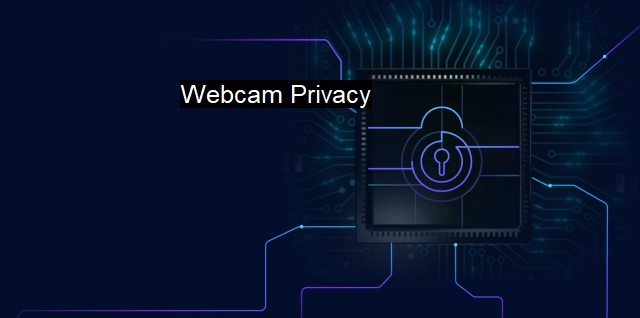What is Webcam Privacy?
Why Webcam Privacy is Crucial for Cybersecurity: Protecting Your Data and Safety with Antivirus Protection
Webcam privacy is a critical component of cybersecurity and antivirus protection regimes today. It refers to safeguarding online privacy through controlling and managing access to one's webcam. With the increased integration of webcams in devices such as laptops, PCs, smartphones, smart TVs, and even children's toys, the potential violation of privacy via webcams has become a significant concern. A malicious software application that can gain illegal access to a device's webcam without the knowledge of the user can tantamount to an intrusion, jeopardizing incessant privacy.Webcam hacking is an invasive type of cyber attack that often targets users' personal space. Typically, cybercriminals exploit software vulnerabilities to hack into webcams, using them to spy on private affairs, capturing video or still images that can be used for extortion, stalking, and possibly, identity theft. The scale of this risk escalates with the proliferation of smart home devices and internet-of-things technology, intricately connecting webcams to the internet trunk.
Webcam privacy, therefore, pertains as an arm to cybersecurity, a protective mantle to seal potential cracks that cybercriminals can exploit to use webcams as a spying tool. Cybersecurity scientists and antivirus companies are investing resources to clampdown on these myths, advancing research that introduces new ways to protect consumers from becoming victims of webcam hacks. They focus on constructing varied forms of cutting-edge privacy shields, including the evolution of antivirus programs contextual to webcam privacy.
It's common knowledge that outdated software significantly causes systems vulnerability. evolving digital mechanisms are creating antivirus applications capable of detecting incompatible drivers that can potentially enable access for webcam hackers. They provide an avenue for regular system and software updates, thereby eliminating security blind spots.
Another direct approach targeted at protecting webcam privacy involves monitoring the network for any irregular activities. An in-built feature can warn the user against the slightest intrusion in the webcam system or detect the unauthorized access level. Advanced antivirus solutions now offer features designed to block any external unauthorized access to a webcam. Once a malicious attempt is identified, the program isolates it, executing necessary control commands that either quarantine or completely remove the detected threat.
Further, antivirus programs are capable of tracking down spyware that may intrude webcams, ensuring to clean infected systems instantly. Often, harmful codes are disguised under regular web-based behaviors, making it a challenge to detect and remove them. advanced antispyware tools comprehensively scan the infected systems, distinguishing harmful codes from normal operations. This, as a result, guarantees continuous privacy for the user as the antispyware prevents and removes sinister programs that might access and misuse webcam footages.
Operatively, webcam privacy correlates to education around webcam usage too. Many antivirus providers go beyond offering protection by providing informative advice to users on how to maintain webcam privacy. For instance, covering the webcam when not in use acts as a fail-safe against invasive video surveillance – minimal effort, maximum security.
The cryptography behind webcam privacy boasts robust algorithms that enable secure encryption and decryption of information access paths. This plays an enormous role in preventing data interception by unscrupulous elements during transmission, precluding the chances of a potential hacking attack.
The landscape of webcam privacy touches on a comprehensive range of cybersecurity practices, tools, and education aimed at safeguarding individual and corporate systems from an intrusion. Naturally, it continues to evolve and mature while responding to emerging trends and threats. It's vital for each user to remain vigilant, keep webcam-related software updated, and deploy suitable antivirus safeguards to protect against potential privacy violations. These culminate in a more secure digital world where everyone can enjoy the benefits of technology with assured peace of mind.

Webcam Privacy FAQs
What is webcam privacy and why is it important for cybersecurity?
Webcam privacy refers to the security measures taken to protect your webcam from being accessed without your knowledge or consent. With the increase in cyber threats, protecting your webcam privacy is critical to prevent hackers from accessing your device's camera and spying on you.What are some ways to ensure webcam privacy?
Some ways to ensure webcam privacy include: 1. Covering your webcam when not in use 2. Disabling your webcam through device settings 3. Keeping your antivirus software updated 4. Not clicking on suspicious links or downloading unknown software 5. Using a privacy screen when working in public places.What are the risks of not protecting your webcam privacy?
The risks of not protecting your webcam privacy are severe, including cyber-criminals accessing your device's camera and spying on you, stealing your personal information, and using it for malicious purposes, and even blackmailing you.How can antivirus software help protect webcam privacy?
Antivirus software can help protect your webcam privacy by detecting and blocking malware that can access your device's camera without your knowledge or consent. It can also detect and remove viruses that could compromise your webcam's security, keeping you safe from cyber threats.| | A | | | B | | | C | | | D | | | E | | | F | | | G | | | H | | | I | | | J | | | K | | | L | | | M | |
| | N | | | O | | | P | | | Q | | | R | | | S | | | T | | | U | | | V | | | W | | | X | | | Y | | | Z | |
| | 1 | | | 2 | | | 3 | | | 4 | | | 7 | | | 8 | | |||||||